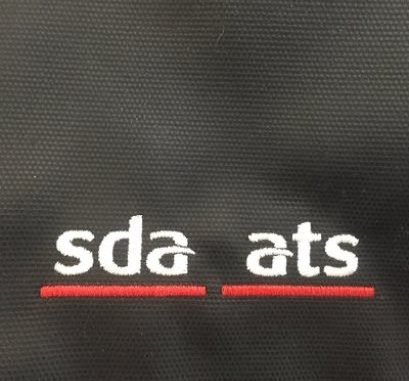
Swiss press agency staff at SDA-ATS went on indefinite strike, starting on 30 January. This is very significant strike action given that it is the first in the Swiss press agency’s history and it is generally rare for Swiss media to go on strike. The strike is directed against 25% job losses (36 out of 150 journalists). This would mean closing down entire departments (the economy department, for example). Sda staff started a twitter account called ‘inside_sda’ to report on their strike.
On 23 January a three hour ‘warning strike’ was held but little to no results. On the first two days of the strike, there were demonstrations in Bern and Zürich at the headquarters of several media organisations, which are among both owners and clients of the press agency. The protests were loud, combative and declared, “SDA is not for profit”.
The SDA CEO caused fury among the staff, when he told Swiss paper, NZZ: “The SDA only owes their shareholders. We do not listen to other claims.”
On the evening of the first day of the strike, a meeting of the strikers meeting unanimously decided to continue the strike the next day, given that there were no serious attempts from management to discuss removing the treat of sackings. The SDA staff issued the following call to the media: “Dear colleagues of online, radio and print media. We are sorry if we are causing extra work for you. In the last few days many people have stressed how important our work is, how necessary. We are fighting to continue to produce content that is of use.”
The strike is taking place against the background of a massive crisis of the media sector in Switzerland. Major print media companies are merging, which, in turn, means less clients/money for the sda. The entire media sector is cutting jobs. The sda, as well, is to be merged. The media crisis, in turn, is a symptom of the general economic crisis. The Swiss economy had been growing by as little as 0.8% over 2015 and 2016 and at just 1% in 2017. Switzerland, along with Austria, was once held up as a model of ‘social partnership’, with an average of two strike days per year in 2006-2015.
Now there is an increase in struggle. In June 2017, dock workers went on strike against the sacking of 34 workers. A wave of school student protests against cuts in education has taken place across Switzerland since September 2017.The increase in strike days is now boosted by the two days of strikes (and potentially more) at the sda.
2018 marks the 100 anniversary of the Swiss 1918 general strike in the wake of the Russian Revolution, when a massive strike wave won major concessions concerning labour laws, highlighting the combative history of the workers’ movement. Vania Alleva, head of the largest union in Switzerland, UNIA, was forced to admit in an interview on the 1918 strike that today social partnership is less and less an option for the bosses, thus forcing unions to adopt a more combative strategy, including strikes.
Broadcasting fees
At the moment there is a referendum on public broadcasting fees. The right wing populist Swiss People’s Party (SVP) and neoliberal politicians are leading the ‘no billag’ campaign (‘billag’ is the name of the fee), aimed at preparing privatisation of the public broadcaster, SRF. This is another symptom of the media crisis and the desperation of the print media, hoping to strengthen their position in private television.
The Austrian far right-conservative coalition government is watching the ‘billag’ referendum closely. They have similar plans for the Austrian public broadcaster, ORF.
The right wing populist party, SVP, which became the strongest party in Switzerland in the 2015 general elections, using right wing populist (and racist) referendum campaigns, is generally regarded as a model for the Austrian Freedom Party. Public broadcasting is under attack Europe-wide, including by attempts to abolish fees by the Danish right wing populists. In Germany there is discussion about getting rid of fees and privatising the main public broadcasters, ARD and ZDF. The SDA-ATS strike might also have an effect on the billag referendum.
The three days of strike have already left their mark. The workers’ industrial action is widely discussed and the reactions to it are mostly positive. Several, mostly smaller and regional media outlets, but even the public broadcaster, SRF, have stated that they could not do their work without the sda. Especially in times of cutting back staff, media companies are more and more relying on agency content.
Pressure on the media companies is rising both as owners and clients. The strike is widely discussed by the political parties. Even the media minister had to take an understanding stance. The fact that the strike is so widely discussed is significant – it simply could not be ignored.
The strike, if successful, has the potential to inspire other struggles both in the media sector nationally and internationally but also in other workplaces in Switzerland. Our solidarity is with SDA-ATS workers.
Stop Press: The strike at the Swiss Press Agency was suspended today to allow for negotiations. The outcome of the talks, will determine whether the journalists strike again or not.


Be the first to comment